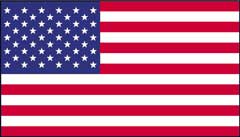Expenditures made or incurred during the period before a primary campaign or
general election campaign (the “pre-primary/pre-general election period”) are
limited to the required amount of qualifying contributions, plus any allowable
personal funds the candidate provides to the candidate committee. This period
ends with the commencement of the primary campaign period or the general
election campaign period, as discussed below.
For major party gubernatorial candidates, that receive a convention campaign
grant, expenditures made during the convention campaign period are limited to
the required amount of qualifying contributions, any allowable personal funds
and the amount of the convention campaign grant. The convention campaign
period begins when a participating candidate files SEEC Form CEP 10 and ends
at the close of the candidate’s party state nominating convention.
For candidates for statewide office or the district office of State Senator or State
Representative, the primary campaign period begins the day after the close of
the state or district convention held to endorse such candidate. For candidates
for the municipal office of State Senator or State Representative, the primary
campaign period begins the day after the close of the caucus, convention, or
town committee meeting held to endorse such candidate. The primary
campaign period ends on the day of the primary election.
The primary campaign period limit is calculated by adding the amount of
the primary grant, and any unspent qualifying contributions or unspent
personal funds provided by the candidate.
If a primary is held, the general election campaign period for the candidate
nominated at the primary begins the day after the primary. If there is no primary,
the general election campaign period begins the day after the candidate is
nominated. The general election campaign period ends the day the campaign
treasurer files the final required campaign finance disclosure statement.
The general election campaign period limit is calculated by adding the
amount of the general election grant, and any unspent qualifying
contributions or unspent personal funds provided by the candidate.
Expenditure Limits During "Convention Campaign/Pre-Primary/Pre-General Election Period"
| Office Sought |
Qualifying Amount |
Maximum Allowable Amount of Candidate's Personal Funds |
Maximum Expenditures During Period |
| Governor |
$335,500 |
$20,000 |
$335,500 - $355,500
(for candidates that did not receive a convention campaign grant)
$335,500 - $1,293,088.75
(for candidates that received a convention campaign grant) |
| Lieutenant Governor |
$100,700 |
$10,000 |
$100,700 - $110,700 |
| Secretary of the State |
$100,700 |
$10,000 |
$100,700 - $110,700 |
| State Comptroller |
$100,700 |
$10,000 |
$100,700 - $110,700 |
| State Treasurer |
$100,700 |
$10,000 |
$100,700 - $110,700 |
| Attorney General |
$100,700 |
$10,000 |
$100,700 - $110,700 |
| State Senator |
$20,100 |
$2,000 |
$20,100 - $22,100 |
| State Representative |
$6,700 |
$1,000 |
$6,700 - $7,700 |
 UNITED STATES Full
UNITED STATES Full  CONNECTICUT Full
CONNECTICUT Full  © 2026 CT.GOV | CONNECTICUT'S OFFICIAL STATE WEBSITE
© 2026 CT.GOV | CONNECTICUT'S OFFICIAL STATE WEBSITE
 UNITED STATES Full
UNITED STATES Full  CONNECTICUT Full
CONNECTICUT Full  © 2026 CT.GOV | CONNECTICUT'S OFFICIAL STATE WEBSITE
© 2026 CT.GOV | CONNECTICUT'S OFFICIAL STATE WEBSITE